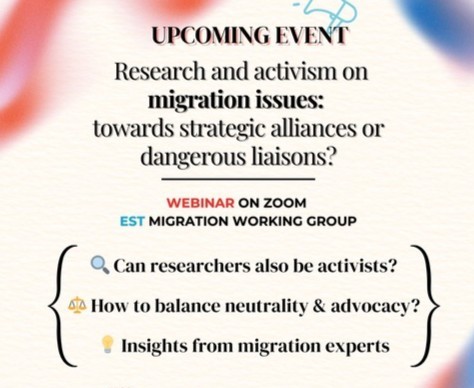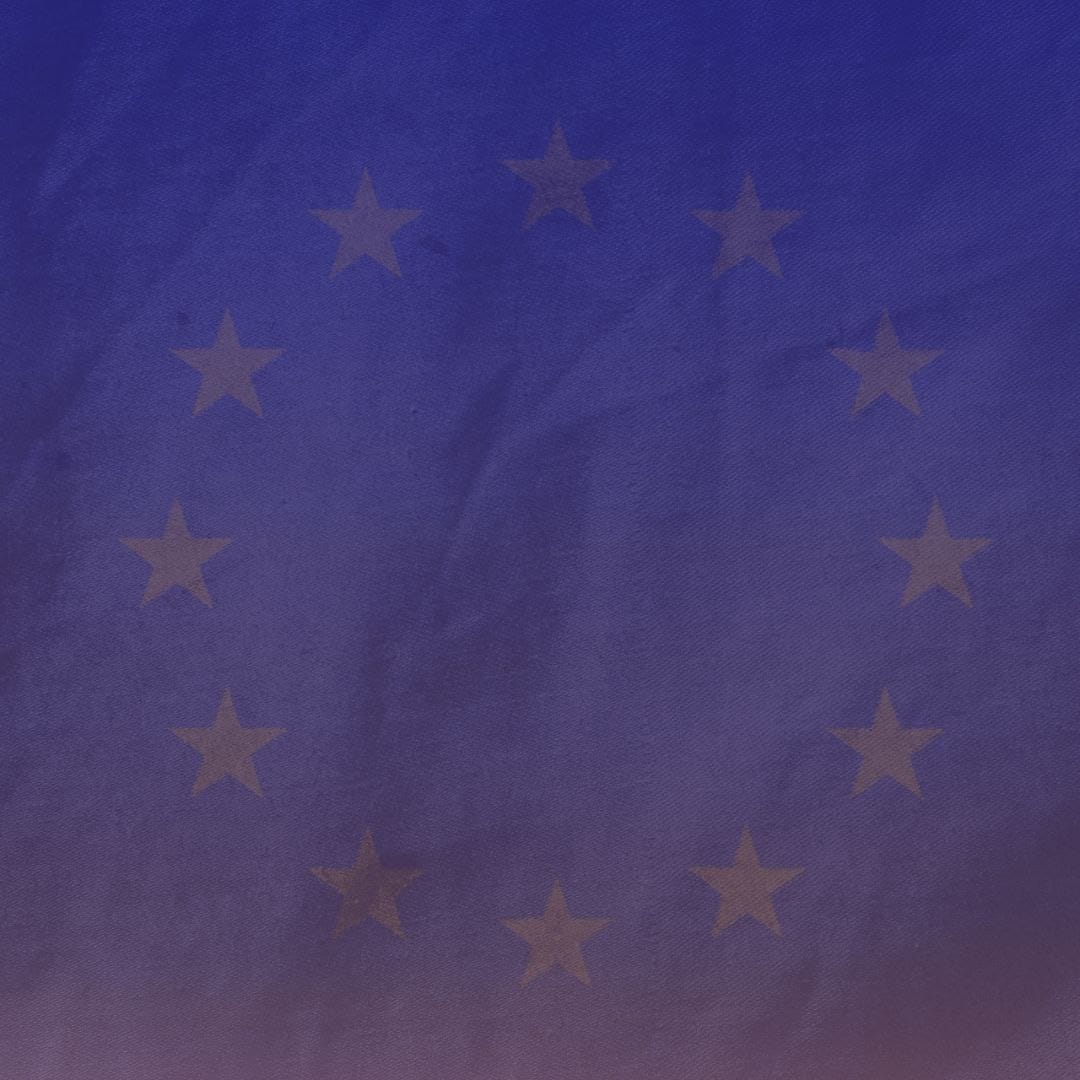
Written by Claire Byrne & Laura Schmeer
Article 1 for the EST Working Group on Migration
When writing this first publication for the working group on migration, we sought to analyze what impact the European Parliament elections will have on migration policy at the EU level. Prior to the election, there was much discussion on how deeply fragmented European Member States have been- especially on the topic of migration. The growing nationalist movements along with an increasing anti-migrant rhetoric in European countries have given rise to concern over how the topic of migration policy will be tackled by the Parliament in the future. To analyze this, we will look at how prevalent the topic of migration policy was in the election campaigns, examine the challenges of finding a cohesive European response to the “migration crisis”, and lastly assess the influence that the election results might have on the moving forward of the migration policy.
Migration in the election campaigns – not invited to the party?
Scrutinising the programmes of the various European political groups, certain differences regarding migration become apparent. The conservative European People’s Party (EPP) set a clear securitarian agenda focussing on border protection and returns. This is supposed to be achieved by strengthening the European Border and Coast Guard Agency “Frontex” and through enhanced agreements with North-African countries. Their programme was complemented by a vague commitment to humanitarian responsibilities based on Christian values, the introduction of a “Marshall Plan” for Africa and the improvement of integration policies (European Council of Refugees and Exiles, 2019). The Party of European Socialists (S&D/PES), on the other hand, stressed the benefits of migration and proposed a combination of effective border control and the creation of safe and legal channels of migration to the EU (European Council of Refugees and Exiles, 2019). The latter has also been a priority for the European Greens (Greens/EFA) in addition to a strong human rights-based focus. They put forward demands to ensure that human rights are protected in agreements with third countries, to guarantee access to asylum procedures and legal assistance for migrants, as well as to stop the criminalisation of solidarity with refugees. This rights-based approach was accompanied by claims for an improved European asylum system and an enhanced democratic scrutiny for the European Parliament in EU migration policies (European Council of Refugees and Exiles, 2019). The liberal Alliance for Liberals and Democrats in Europe (ALDE) party also proposed to expand legal channels of migration. They planned to do so by extending the EU resident and work permit (EU blue card), and by ensuring that migrants primarily find shelter in their regions of origin rather than taking on the journey to Europe. This shall notably be accomplished through agreements with so-called safe countries that would be granted financial support for accepting returned migrants as well as through diverting development instruments to combat the root causes of migration (European Council of Refugees and Exiles, 2019). Far-right and populist parties, notably united in the groups of the European Conservatives and Reformists (ECR), Europe of Nations and Freedoms (MENF) as well as Europe of Freedom and Direct Democracy (EFDD), unsurprisingly mostly defended anti-immigrant positions. They claimed re-nationalisation of migration policies, while strongly emphasizing the sovereignty of Member States (European Council of Refugees and Exiles, 2019).
Beyond these political programmatic differences between the parties, however, an overarching trend across all the party platforms became apparent; The issue of migration was indeed mostly absent in the debates preceding the European elections, such as the Maastricht Debate where statements on migration could be counted on one hand (Politico, 2019b; Sorace, 2019). This is even more striking when considering how the topic had previously been politicised and depicted as a major crisis of the European Union and that the migration issue has consistently been among the top concerns of the voters throughout the campaign (Fox, 2019). This indicates a clear dissonance between the electorate and the parties seeking to represent them. In the lead up to the election, polls showed that relevance of issues varied greatly by region; immigration, for instance, being the top issue for southern and central Europe but not necessarily for other European parts (Politico, 2019a). Hence it will only become more challenging to reach consensus on concrete approaches to asylum processes and broader migration reforms. In the election campaigns, individual candidates addressed asylum and migration mostly by giving general statements without much substance or solid ideas. Thus, green and socialist candidates, for instance, made recurrent claims for more solidarity, but were unable to put forward concrete proposals on how to enhance it (see for example the Florence Debate: Financial Times, 2019). Statements on migration were principally based on the recurrent claim to protect refugees while, at the same time, ensuring the effective control of the EU borders. Though positions were mostly consensual on these two points, only a few politicians were able to put forward concrete proposals on how to resolve the inherent contradiction to ensure protection for people in need when there is no legal way of actually accessing the EU and its asylum procedures (Woollard, 2019).
Past, present, and future of reforming EU asylum policy
The remarkable absence of the migration issue in the EU election campaign is less surprising when considering the role it played during the previous legislature. In the aftermath of the 2015 migration crisis, the completion of the reform of the Common European Asylum System (CEAS) before the end of its term in 2019 has been one of the declared goals of the Juncker Commission (European Commission, 2015; Gotev, 2018). The main objective was to further harmonise the European rules on asylum in order to avoid an uneven distribution of asylum applications among the Member States and thus prevent secondary movements of asylum seekers inside the EU. These reform plans, however, resulted in a deadlock (Fox, 2019). It is worth noting that this is clearly not due to a lack of activity of the outgoing European Parliament. The latter has indeed been progressive on migration topics and has even reached an across-group consensus on the CEAS reform. The negotiation impasse can rather be explained by the Member States’ inability to reach an agreement in the Council. This political imbroglio shows why, despite the obvious need of action on migration, the topic has been largely absent from most of the debates: European politicians might suffer from “migration fatigue” regarding a common European asylum policy solution which indeed now does seem less and less likely.
Specifically, regarding the CEAS, the recent EU elections raise several uncertainties as to the future of reform negotiations. First of all, it is questionable whether the election results might change anything with regards to the current deadlock on EU asylum policy in the Council since this would require a shift in the set-up of the Council or a change of national priorities on migration. Both seem unlikely (Pollet, 2019). In addition to that, the opportunity to bring new momentum to the debate on migration policy through the elections was clearly missed. The failure to conclude the reform on asylum policies before the elections because of disagreements of the co-legislators might have severe consequences since the new Parliament is not bound by past commitments (Pollet, 2019). It thus remains to be seen whether the newly elected European Parliament will still be as responsive and united on migration or if the reached agreements will be annihilated in the future.
A fragmented parliament
While the successes of nationalist and far-right parties did not produce the shockwave many had feared, they still made significant gains in some Member States resulting in a changed composition of the Parliament. The often-discussed issue of a “fragmented Europe” has been reflected in many parts of this year’s election, but mainly in the distribution of seats and power. The biggest winners with regards to seat increase were the Liberal Democrats ALDE (+41 seats) and smaller parties like the European Greens (+19 seats) and Europe of Nations and Freedom (+35 seats) (“Comparative Results”, 2019). This poses several questions: How will the new makeup of the European Parliament affect negotiations and reforms of policies such as the CEAS? For the first time in the history of the EP, the two major political groups (EPP and S&D) do not hold the absolute majority of seats which further complicates the Parliament’s ability to reach a consensus and thus its ability to act. It is also still unclear how the new alliances will be negotiated and thus how consensus in the Parliament will be reached, making it even more challenging to find a common position on migration. Furthermore, there are remaining unanswered questions on how the gains for the Eurosceptic and nationalist parties will affect migration policy. Though previous predictions of large Eurosceptic waves sweeping away the parliament ultimately did not hold true, significant changes in the parliament’s make-up and the gains of Eurosceptic parties within certain countries should nonetheless not be ignored. On the other hand, fragmentation within the far-right and Eurosceptic parties themselves can be observed which is likely to limit their capacity to impair the EP’s decisions. However, finding majorities on legislative proposals in the European Parliament has always been an “ad hoc exercise” (Sorace, 2019) and this is unlikely to change due to the new set-up. From the dissonance between the interest polls of the electorate and the offered policy platforms, to the growth of smaller parties away from the classic umbrella centrists groups; what the results do show is the fragmentation in this European institution which certainly does pose new challenges to the parliament, especially with regard to a moving forward of migration policies. Notwithstanding the described challenges, the effect of the different elucidated factors are yet to be seen. Additionally, some positive developments can be observed; Despite strong concerns of voter apathy and of a loss of faith in the EU institutions before the European elections, a welcomed surprise of these was the high voter turnout. The recent elections indeed attracted the highest voter turnout in 20 years (“Elections 2019”, 2019); perhaps indicating the voters’ desire for more European solutions and giving additional legitimacy to the Parliament in the eyes of the electorate. Lastly, throughout the election period, migration was maintained as one of the top issues of the electorate (Politico, 2019a), indicating the importance that is given to the topic [even though there was a lack of tangible actions presented by the party platforms leading up to election day (European Council of Refugees and Exiles, 2019).] These observations give a reason for the hope that the election results might, in the end, have a positive impact on the moving forward of the migration policy, despite all the entailed challenges.
To visit the Working Group on Migration homepage and read more about its goals and the authors of this piece, please click here.
References
European Commission. (2015, May 13). Communication on a European Agenda on Migration. Retrieved from https://eur-lex.europa.eu/legal-content/EN/TXT/HTML/?uri=CELEX:52015DC0240&from=DE
European Council on Refugees and Exiles. (2019). EP Manifestos. Retrieved from https://www.ecre.org/campaign/wp-content/uploads/EP-manifestos.pdf
European Parliament. (2019, May 24). Comparative Results. Retrieved from https://www.election-results.eu/tools/comparative-tool/
European Parliament. (2019, May 29). Elections 2019. Retrieved from http://www.europarl.europa.eu/news/en/headlines/eu-affairs/20190523STO52402/elections-2019-highest-turnout-in-20-years
Financial Times. (2019, May 02). European elections 2019: lead candidates debate EU’s future. Retrieved from https://www.ft.com/content/afb8b950-6a92-11e9-80c7-60ee53e6681d
Fox, B. (2019, February 18). Crisis over, crisis continues. Retrieved from https://www.euractiv.com/section/eu-elections-2019/news/crisis-over-crisis-continues/
Gotev, G. (2018, December 04). Juncker Commission gives up on Dublin asylum reform. Retrieved from https://www.euractiv.com/section/justice-home-affairs/news/juncker-commission-gives-up-on-dublin-asylum-reform/
Politico (2019a, May 08). The most important issues facing the EU – according to voters. Retrieved from https://www.politico.eu/interactive/european-elections-most-important-issues-facing-the-eu/
Politico (2019b). The Maastricht Debate. Retrieved from https://www.politico.eu/event/the-maastricht-debate/
Pollet, K. (2019, May 23). All in vain? The fate of EP positions on asylum reform after the European elections. Retrieved from http://eumigrationlawblog.eu/all-in-vain-the-faith-of-ep-positions-on-asylum-reform-after-the-european-elections/?fbclid=IwAR1ak8UbKEvFEoK_ppILq6ZZeSfOEkuabLarbyH_gWT51Von8YsxeDMsFX4
Sorace, M. (2019, February 14). European Parliament elections-battle for ‘Europe’s soul’? Social Europe. Retrieved from https://www.socialeurope.eu/european-parliament-election
Woollard, C. (2019, May 3). Editorial: A Qualification, an Assumption and a Contradiction – Positions of the Commission Candidates. Retrieved from https://www.ecre.org/a-qualification-an-assumption-and-a-contradiction-positions-of-the-commission-candidates/

 The ’Ndrangheta’s Infiltration and Threat to European Institutions
The ’Ndrangheta’s Infiltration and Threat to European Institutions  From Paper to Practice: How Grassroots Norms Undermine Gender Rights in Pakistan
From Paper to Practice: How Grassroots Norms Undermine Gender Rights in Pakistan  Exploited Childhoods: The Role of Global Corporations in Perpetuating and Mitigating Child Labour
Exploited Childhoods: The Role of Global Corporations in Perpetuating and Mitigating Child Labour  Human Rights Challenges in Addressing SLAPPs in Media, NGOs and Journalism in the EU
Human Rights Challenges in Addressing SLAPPs in Media, NGOs and Journalism in the EU 


